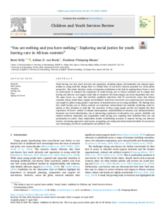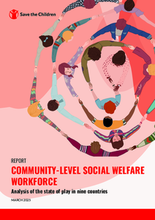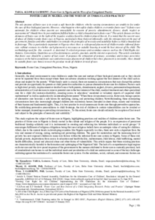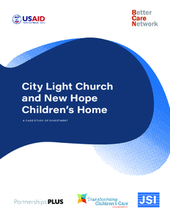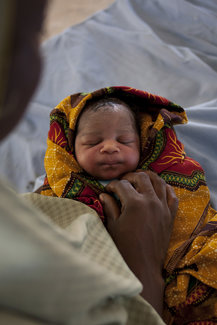

Displaying 21 - 30 of 634
This article uses Nancy Fraser’s social justice framework to examine the experiences of youth leaving care in Ghana, South Africa, Uganda, and Zimbabwe, drawing on interviews with 45 care-leavers conducted by peer researchers. Findings reveal how intersecting injustices—such as stigma, exclusion, and lack of resources—undermine their transition to adulthood, underscoring the need for stronger aftercare services, recognition of diverse identities, and greater youth participation in shaping policy and support.
As they walked through arrivals at Manchester Airport, a couple seemed to be behaving oddly towards their baby. Something did not sit right with Border Force officers.
This study found that parental poverty is a key factor pushing children in Akwa Ibom State, Nigeria into street life, where deprivation drives them to engage in delinquent activities such as theft, drug peddling, and begging. The findings highlight urgent gaps in child welfare and social protection, calling for targeted interventions to address poverty, improve access to education and healthcare, and strengthen support systems.
This report, based on a study across nine countries, examines how to strengthen the community-level social welfare workforce (CLSWW) as a vital but under-resourced part of national child protection systems. It calls for context-specific strategies that clearly define roles and competencies, build capacity, and align with local norms, mechanisms, and resources to enhance child protection outcomes.
This article examines the challenges of foster care in Nigeria, highlighting risks of abuse—especially in informal placements—and questioning whether foster care is always necessary or suitable. It concludes that foster care should be a last resort, urging preventive measures and, where unavoidable, the use of safe and appropriate foster homes that prioritize the best interests of the child.
In this webinar, the Africa Working Group on Children Without Parental Care now called Family First for Children Without Parental Care, (FAFICA), explores key global debates and initiatives advancing care reform, including updates from the African Union and global events like the Global Ministerial Conference on Ending Violence Against Children.
Panama, Uganda, Sri Lanka and Czech Republic among those newly committing to totally prohibit violence against under-18s.
Register for an upcoming webinar hosted by UNICEF ESARO and WCARO on this new data titled “Data speak: Understanding the scale of sexual violence against children in Sub-Saharan Africa”, scheduled for 23rd October 2024 from 15:00 to 16:00 (Nairobi Time) | 12:00-13:00 (Dakar time).
In this workshop panelists explored UNICEF's Data and Analytics Section's protocols and tools for gathering data on children in residential care.
This case study documents the complex process undertaken by a donor partner in Ireland* to push for the transition of their partner residential care service provider in Ghana. It follows their journey through the early stages of transition and eventually leads to their decision to divest of their funding and partnership.

